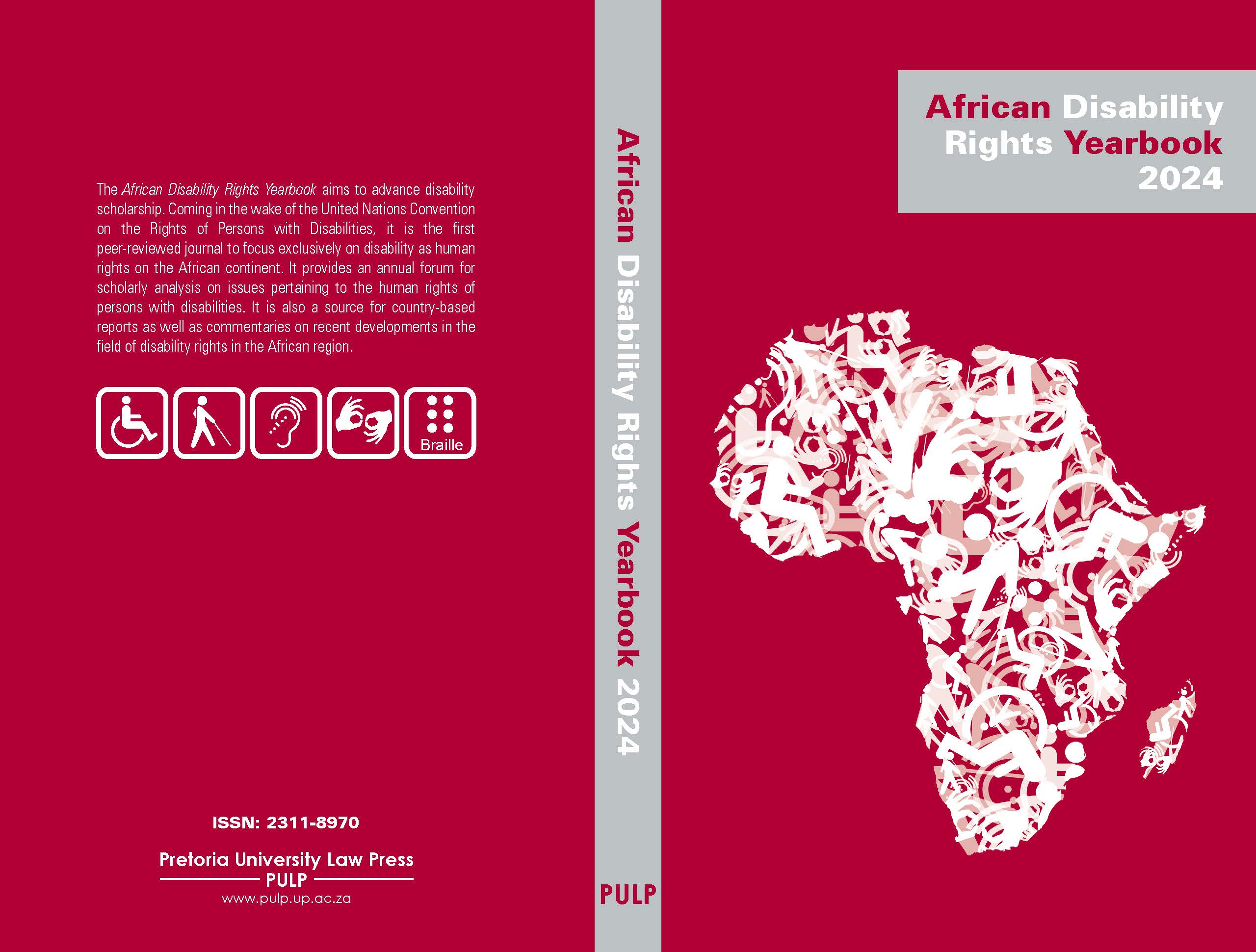The mandate of Zimbabwe Human Rights Commission in promoting and protecting the rights of persons with disabilities
DOI:
https://doi.org/10.29053/adry.v12i1.5532Abstract
Persons with disabilities are vulnerable to systematic discrimination, social exclusion and prejudice within political, social and economic spheres. They are at the highest risk of human rights violations. The United Nations Convention on the Rights of Persons with Disabilities (CRPD), of which the main object is to promote and protect human rights and fundamental freedoms for all persons with disabilities, implicitly nominates National Human Rights Institutions (NHRIs) as key institutions in the advancement of rights of persons with disabilities. Similarly, the Protocol to the African Charter on Human and Peoples’ Rights on the Rights of Persons with Disabilities in Africa impliedly designates NHRIs as institutions responsible for monitoring the implementation of the rights of persons with disabilities. In the same spirit, the Office of the United Nations High Commissioner for Human Rights recognises that NHRIs compliant with the Principles on the Status of National Human Rights Institutions commonly referred to as the Paris Principles are the cornerstone of national human rights protection systems. The Paris Principles enjoin NHRIs to take comprehensive action towards both human rights promotion and protection. The Zimbabwe Human Rights Commission is the NHRI of Zimbabwe and is accredited by the Global Alliance of National Human Rights Institutions as fully compliant with the Paris Principles. The ZHRC’s mandate to advance the rights of persons with disabilities is drawn from the CRPD, and most importantly, domestic legislation sanctioning its existence. This paper seeks to explore the mandate of the ZHRC in the promotion and protection of the rights of persons with disabilities in Zimbabwe.


